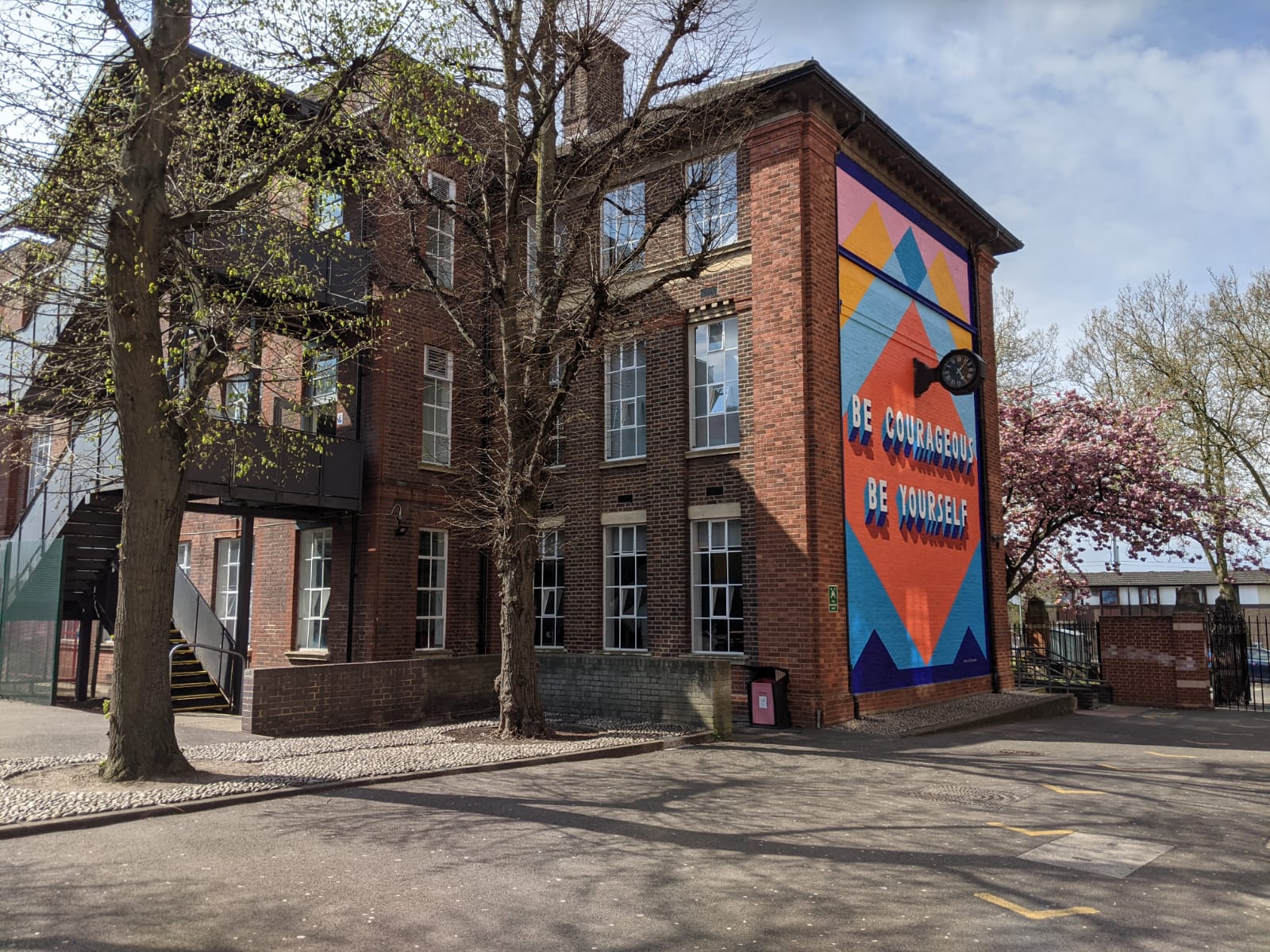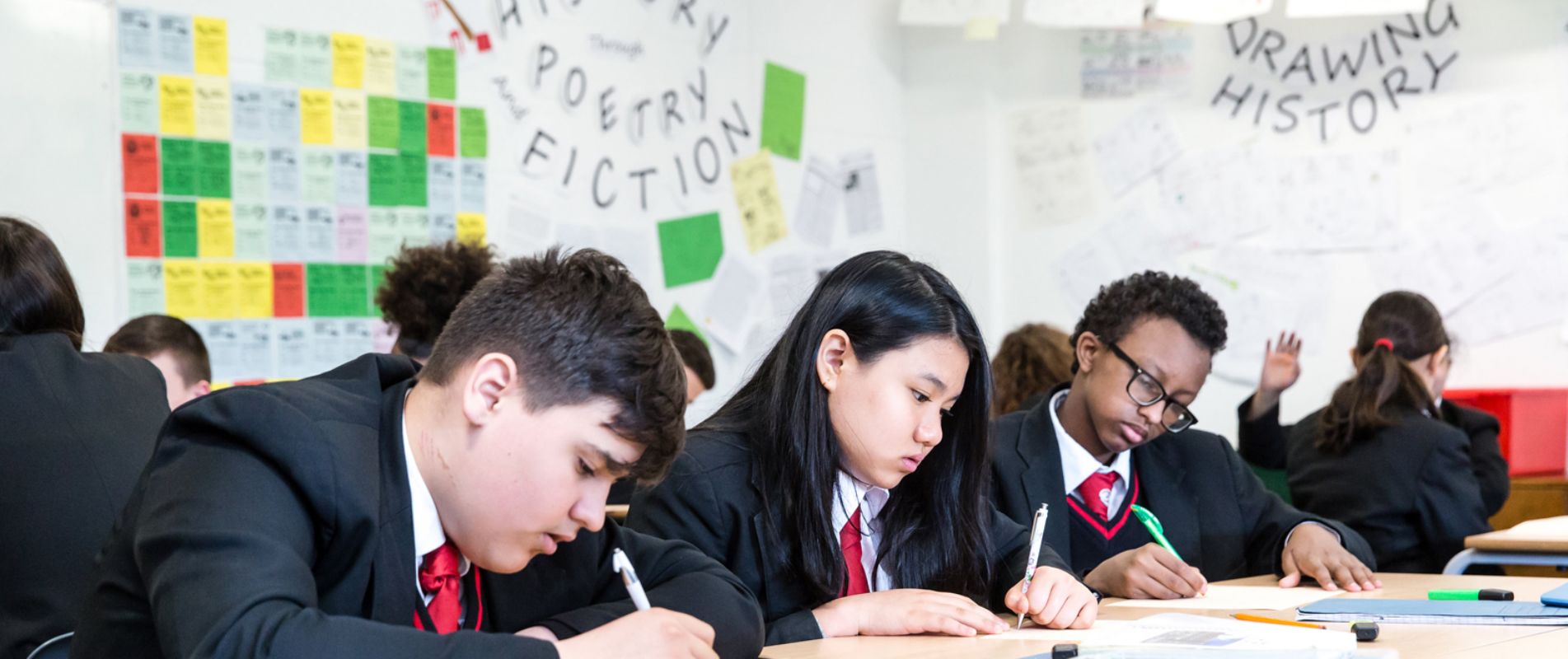Drama
Contacts:
Ms A Barson – Head of Performing Arts faculty
Our Curriculum Vision
The drama department consists of three full time members of staff. Our intention is to create young people who are able to question, make connections, invent and reinvent and to develop imagination.
Through a broad curriculum and excellent links with theatre, playwrights, directors, theatre companies and actors, we aim to develop students’ creativity and sense and understanding of cultural form and self-expression.
Key Stage 3 Curriculum and Assessment:
The curriculum for Years 7, 8 and 9 is skills based. We introduce students to a range of conventions, techniques, playwrights and practitioners over the first three years of their drama course.
Students are encouraged to use the skills they have developed to interpret and make sense of the world around them.
Please CLICK below to discover more about our curriculum
Key Stage 4 Curriculum and Assessment:
The department has two paths of progression available for students at Key Stage 4: Edexcel BTEC Extended Diploma in Performing Arts and GCSE Drama.
GCSE Drama:
Students develop a greater depth of knowledge of conventions, techniques and practitioners.
They study a range of playwrights, both in the classroom and through watching performance and participating in workshops.
Curriculum Outline:
Year 10
- Exploration of Naturalism
- Physical Theatre
- Production and Text work
- Devising
- Unit One exam (Drama exploration 30%)
Year 11
- Unit Two exam (Exploring playtexts 30%)
- Unit three (Performance Exam 40%)
Key Stage 5 Curriculum and Assessment:
The department has one path of progression available for students at Key Stage 5 - Drama and Theatre Studies A Level.
Drama and Theatre Studies A Level
This course introduces the content of plays written for the theatre. Students learn how to analyse plays in a variety of ways so that they become familiar with the way written plays can be interpreted for realisation in performance. They explore two contrasting play texts, chosen by the teachers, in a practical and active way. Both of the plays will be explored in the light of a recognised theatre practitioner. Students will also participate in two performance exams of published play texts.
Students will:
- Explore the use of language, structure and characterisation
- Explore the potential for staging plays
- Explore the social, cultural, historical and political elements of the plays
- Show how the meaning of a play might be interpreted and communicated to an audience
- Consider how the application of dramatic elements (ie movement, vocal expression, sound, light, costume, masks, props and setting) contribute to the development and shaping of ideas for the performance of the selected plays
- Evaluate the merits of both the plays they have explored and consider their worth in society today
- Explore at least one of the plays in terms of at least one recognised practitioner.
Enrichment Opportunities:
The Drama Department is keen to encourage students, to participate in extra-curricular activities. We are keen to target students from a diverse range of groups, particularly ones that may shine in the curriculum and are probably hesitant to put themselves forward for extracurricular work.
Production work, Theatre visits, practitioner workshops and play writing form the core of our extra-curricular projects. We aim to produce two school productions a year, along with a range of one off events and clubs.
Off-site learning:
We actively encourage students to participate in local drama classes. These include Young company at the Tricycle theatre, CSSD summer schools and the Royal court young playwright group.
Trips to theatres are organised for KS4 and KS5 throughout the year, by the individual Drama teachers.
Additional Information:
Theatres with great education departments and interesting programming for young people include:
- Hampstead Theatre: www.hampsteadtheatre.com
- The Royal Court: www.royalcourttheatre.com
- The Tricycle Theatre: www.tricycle.co.uk
- Royal Shakespeare Company: www.rsc.org.uk
- The Royal National Theatre: www.nationaltheatre.org.uk
- The Donmar Warehouse: www.donmarwarehouse.com
- The Almeida: www.almeida.co.uk
- Theatre De Complicite: www.complicite.org
- The Globe Theatre: www.shakespeares-globe.org/globeeducation


